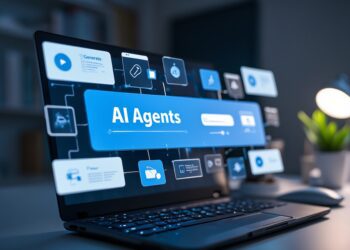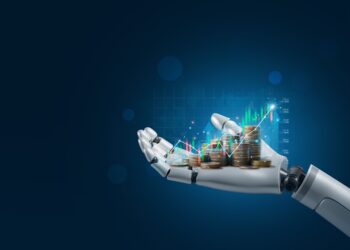A study published recently in one of the top economics journals adds a promising new layer to the usual AI-and-jobs narrative.
Researchers examined a GPT-3-powered AI assistance tool that had been rolled out to more than 5,000 customer service agents at a Fortune 500 software firm. This setting, a high-turnover, high-pressure environment dealing with frustrated customers, was ripe for real-time AI support.
The results were striking: AI boosted overall productivity by 15 percent, with a remarkable 36 percent improvement among the least-experienced agents. In other words, the largest gains materialized where workers needed the most help.
By filling knowledge gaps in real-time, AI shortened customer interactions, enabling employees to manage more chats per hour. In contrast, top performers experienced minimal improvements, likely because they were already highly efficient.
This finding flips the standard narrative of low-skilled workers as the first casualties of new technology.
AI flattened their learning curve, enabling faster skill acquisition. It accelerated on-the-job learning, filling knowledge gaps in months rather than years. The trend, if it holds, would benefit both businesses (which would see greater productivity) and workers (who would gain valuable skills and higher earning potential).
The study also reveals AI’s potential to counteract labor-market imbalances caused by earlier waves of automation.
For decades, technological change has gradually shifted the landscape of middle-skill work, particularly in office administration and manufacturing, reducing demand for some roles and nudging many Americans without college degrees into lower-paying service jobs. Meanwhile, professionals whose work depends on judgment and creativity have remained largely insulated.
AI, it seems, might broaden access to decision-making roles by equipping a wider range of workers with real-time expertise. Imagine if, rather than economic nationalism, AI rebalanced the labor market so that middle-skill jobs could once again become thriving sources of economic mobility.
Meanwhile, AI won’t necessarily shrink the value of top experts; it may simply allow more people to participate in tasks that once demanded advanced training. Think of it as democratizing expertise as a perpetual on-the-job trainer and research assistant.
For example, while AI may outperform radiologists in reading mammograms, it can’t handle 26 other defined tasks like comforting patients or coordinating care. In fact, researchers found that although AI could perform certain tasks in nearly all of the 950 occupations, machines could not fully handle any job alone.
MIT economist David Autor’s research similarly shows how technology creates new roles. About 60 percent of today’s jobs didn’t exist in 1940 — a reminder of technology’s profound capacity to reinvent and expand human labor.
Just as the ATM didn’t eliminate the need for human tellers (it shifted them toward customer-facing services), well-designed AI can free workers from routine tasks, letting them focus on critical thinking, empathy and creativity — traits that remain uniquely human.
To ensure that AI strengthens the labor market, policymakers should correct the tax code’s bias against human capital.
Businesses currently deduct training expenses only if they are job-specific. Allowing full expensing for all worker training, just as we do for physical capital such as buildings or tech equipment, would incentivize firms to reskill workers for higher-value roles. This reform encourages the proactive retraining workers need and supports upward mobility in an AI-enhanced economy.
Equally important is giving individuals greater financial flexibility to invest in their own skills. Universal Savings Accounts provide a streamlined tool for workers, particularly those in low- and middle-income brackets, to save tax-free for training and career transitions without the complexity of current benefit systems.
None of this means we should be naive about AI’s drawbacks. The lesson here is one of agency: AI will shape our workforce primarily in the ways we allow it to.
If we guide it toward augmenting human capabilities, it can foster broader employment options and help reclaim the middle-skill workforce that’s been hollowed out by past technological disruptions.
Liya Palagashvili is a senior research fellow and Director of Labor Policy with the Mercatus Center at George Mason University.
Read the full story by LIYA PALAGASHVILI AND REVANA SHARFUDDIN / The Hill












